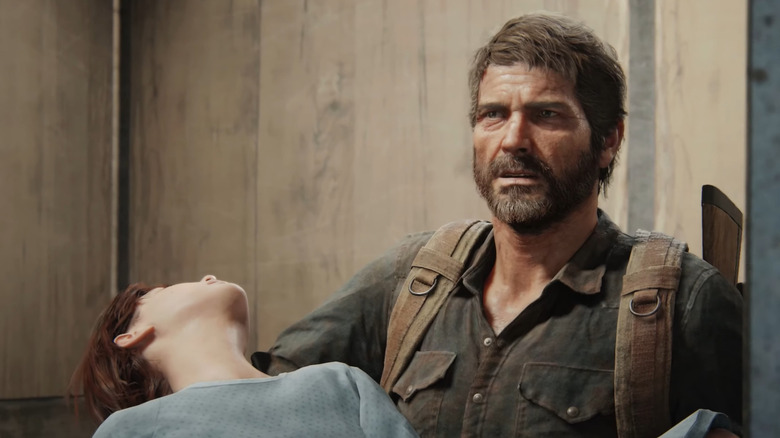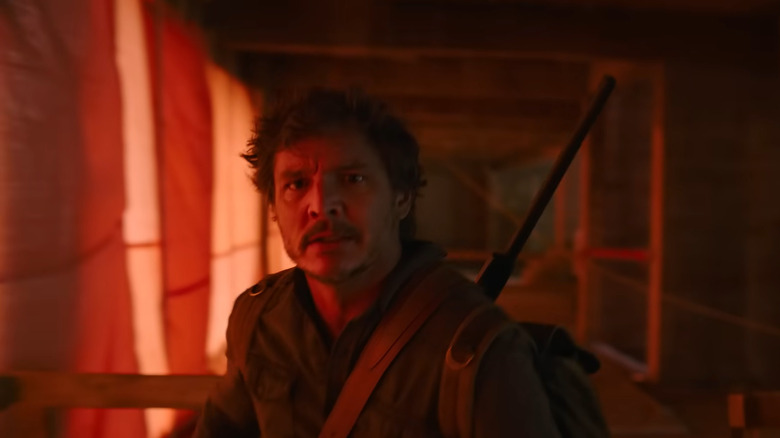One Key Last Of Us Finale Sequence Used Music From A Different Moment In The Game
This post contains spoilers for "The Last of Us" season finale and "The Last of Us" video game.
Although the season finale of "The Last of Us" stays pretty faithful to the source material, there are still a few surprises thrown in for those who watch the show and also played the game. One of these changes is a shift in the way Joel's hospital rampage is depicted: In the game, this section features several minutes of him brutally murdering a bunch of soldiers (and a doctor or two) through any means necessary. In the show, this sequence goes by a lot faster. Joel still goes on a massacre, but it's depicted via montage, with sad, haunting music playing while we watch Joel kill person after person.
If the music sounded familiar to you, that's because you may have already heard it. It's the music that plays a little later on in the game, when Joel picks up unconscious Ellie from the operating table. So, why did the creators of the show move the music around? At a recent virtual press event attended by /Film's Ben Pearson, showrunner Craig Mazin explained:
"In the game, that [hospital massacre] sequence is largely gameplay. Of course. That makes sense. But here, this kind of beautiful, sad, mournful, cello-based piece allowed us, I think, to feel almost heartbroken by what Joel was doing and what he was breaking inside of himself and, in a way, how he was betraying something he probably knows Ellie wouldn't want him to do. You're both rooting for him, and you're also so sad for him."
Was it the right choice?
It's hard to complain, really. The show has already made it clear that it's far less interested in the action sequences than the game was, for obvious reasons. It makes some sense to fast-forward through this section in the show because thematically, the action itself isn't really the interesting part here. Viewers are wondering about the implications of what Joel's doing, whether he's doing the right thing, and what sort of impact this will have on his relationship with Ellie. To include the extra tension of "Can Joel successfully kill all these soldiers?" might make things feel too muddled.
On the other hand, the way the show glosses over the violence Joel's committing seems to undercut the impact of its famously uncomfortable, ambiguous ending. The question of whether Joel's doing the right thing here — or, if we agree he's doing the wrong thing, whether we can forgive him for it — is made a little easier by the fact that the camera doesn't linger on Joel's violence as the game does. The game forces players to reckon with the human cost of Joel's decision for a significant period of time, whereas the game skips over the worst of it. It results in an ending for the show that feels slightly watered down.
On the bright side, we can all at least agree that the music — "All Gone (No Escape)," composed by Gustavo Santaolalla — is hauntingly beautiful, and definitely deserved to be in the sequence at some point. Whether it was the right choice to play during Joel's rampage or not, it definitely helped set a mood. As Mazin put it, "That's the brilliance of Gustavo, is that sometimes just taking a piece from over here and putting it under this makes magic."
"The Last of Us" season 1 is now streaming in its entirety on HBO Max.

